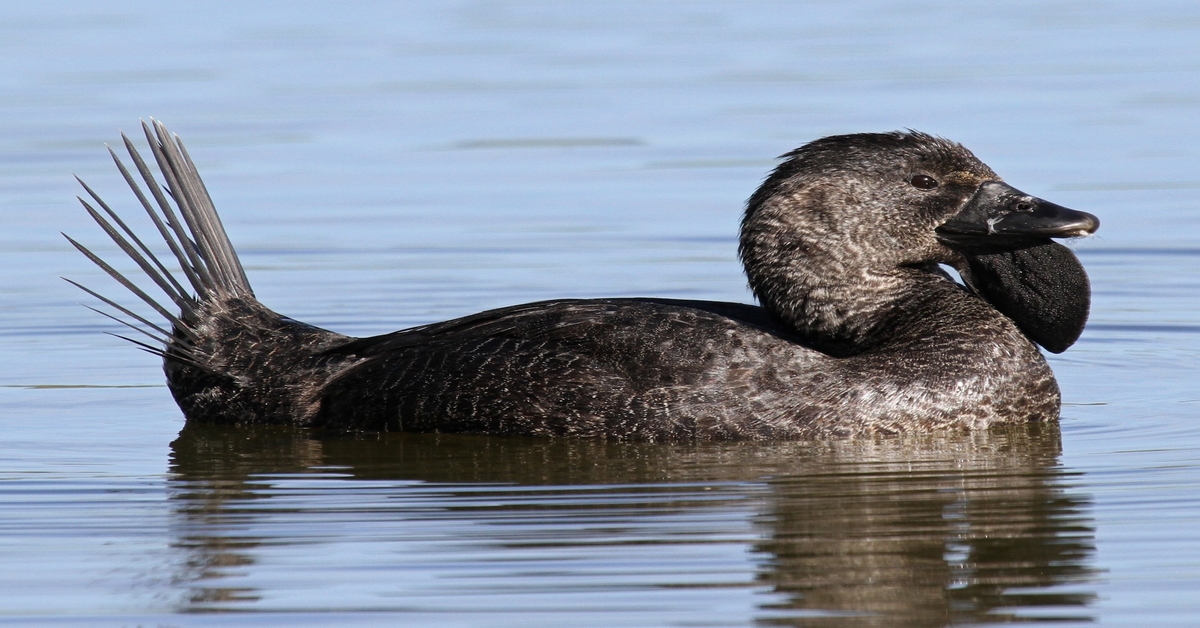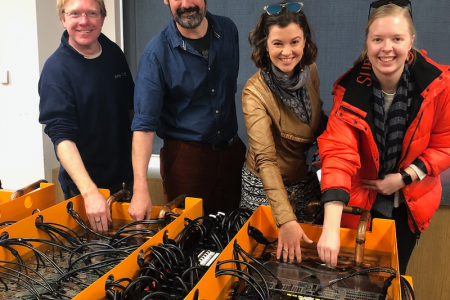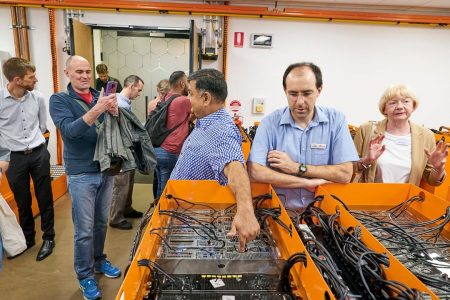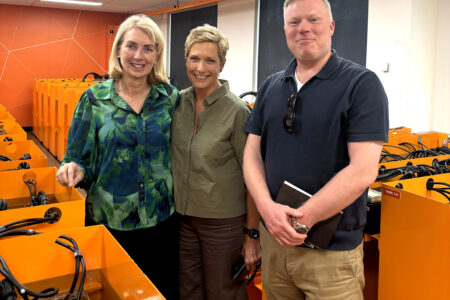Imagine taking a lovely stroll in a park on a summer’s evening… only to be greeted by a foul-mouthed duck unapologetically saying: “You bloody fool!!!”
Chances are you’d be more amused than offended!
Sound mimicry is relatively common among some animals, particularly birds. Now, the Australian Musk Duck (Biziura Iobata) can be added to these ranks.
A swearing duck.
Described in a published study, adult Musk Ducks in captivity can imitate the sounds they hear as hatchlings, such as a door slamming, a man coughing, a pony snorting and even one truly Australian catchphrase… (Most probably uttered countless times by their caretakers).
“You bloody fool,” murmured Ripper, the endearing Musk Duck studied by Professor Carel ten Cate of Leiden University, The Netherlands and Dr Peter Fullagar, a now-retired Australian scientist from CSIRO.
Listen to the recording of Ripper making all sorts of sounds, including the cuss, here!
Vocal learning in animals.
Vocal learning in animals is a rare and special trait, also seen in other animals such as parrots, some songbirds, whales, bats, seals, elephants and of course, humans. They acquire “utterances” based on what they hear as infants. Check out this lyrebird from Sydney’s Taronga Zoo, who recently went viral for perfecting the hair-raising wail of a baby! You certainly don’t want this bird outside your house in the middle of the night!
The Musk Duck is the first member of the Anserinae species (ducks, geese and swans) to display the ability to learn and mimic vocalisations. This strange behaviour could be due to the altricial nature of the duck – they require constant care and feeding by their parents until they mature. As a result, they have longer social contact with their mothers compared to other Anserine species.
The same attachment to their caretakers could also form if they’re isolated for long periods. Being altricial, the researchers believe that the longer period of dependency might be accompanied by a more gradual development of neural systems, leading to behavioural development such as the impressive ability to mimic sounds.
Why vocal learning evolved in Musk Ducks but not in other Anserines is still unclear. However, this presents a new opportunity for scientists to study the phenomenon more extensively and systematically. Such studies could contribute important insights into the behavioural and neural mechanisms of the ducks, paving the way to understanding why and how certain behaviours have evolved in some species, but not in others. Perhaps this will also help us understand why cockatoos in the suburbs of New South Wales are so adept at opening garbage bin lids. These clever birds didn’t just pick the skill up from humans, they also spread the mischievous behaviour to other cockatoo buddies! Are they gearing up for a real-life reenactment of Alfred Hitchcock’s The Birds? Hopefully not!
But for now… maybe don’t go around throwing the F-bomb when you’re in the company of Musk Duckies!




































